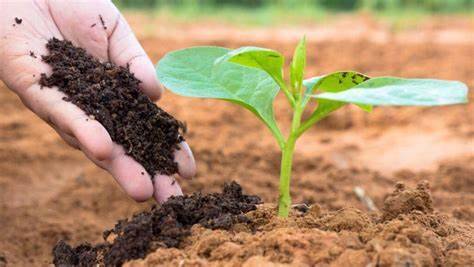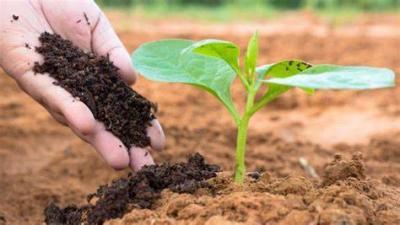An Emirati farmer has managed to produce 200 tons of organic fertilizer monthly by collecting fruit and vegetable waste and eggshells for recycling. Obaid Hamid Al Zaabi, who owns the "Sara" nursery in Ajman Emirate, stated that his nursery focuses on the production of organic and natural fertilizers to enhance the productivity of agricultural land and contribute to reducing environmental pollution caused by the excessive use of chemical fertilizers through recycling organic waste and creating compost.
He explained that compost is made from organic material derived from plants and decaying animal waste, in addition to leftover vegetables, fruits, and shells from over 1.4 million eggs monthly, which are dried and then introduced into the compost preparation process. He noted that he has also succeeded in producing "worm fertilizer," known from composting worms.
Regarding the stages of fertilizer production, Al Zaabi mentioned that the process involves feeding composting worms a heterogeneous mixture of vegetable and fruit waste, which has started being produced in large quantities through multiple stages and specific mechanisms for recycling organic waste essential for soil fertilization.
He emphasized that cooperation with relevant authorities has contributed to the success of the recycling process, praising the role of Ajman Municipality, which provided the nursery with inedible organic materials from vegetables, fruits, and agricultural waste. The nursery recycles these materials and combines them with animal waste to produce compost.
It is noteworthy that disposing of food scraps in landfills leads to their decomposition and subsequently to the emission of methane gas, a potent greenhouse gas that contributes to climate change. Furthermore, transporting wasted food increases carbon emissions and other harmful pollutants in the environment.
Al Zaabi also discussed the health pest control methods used in his nursery, utilizing small fish farms that help eliminate harmful insects without the need for chemical pesticides, leading to a healthier environment for plants, soil, and humans while promoting sustainable healthy living.
Obaid Hamid Al Zaabi, in collaboration with many Emirati farmers, organizes community initiatives on their farms, in addition to establishing a "Knowledge Oasis" that works with the Ministry of Climate Change and Environment to hold educational workshops and lectures for community members and farmers.




